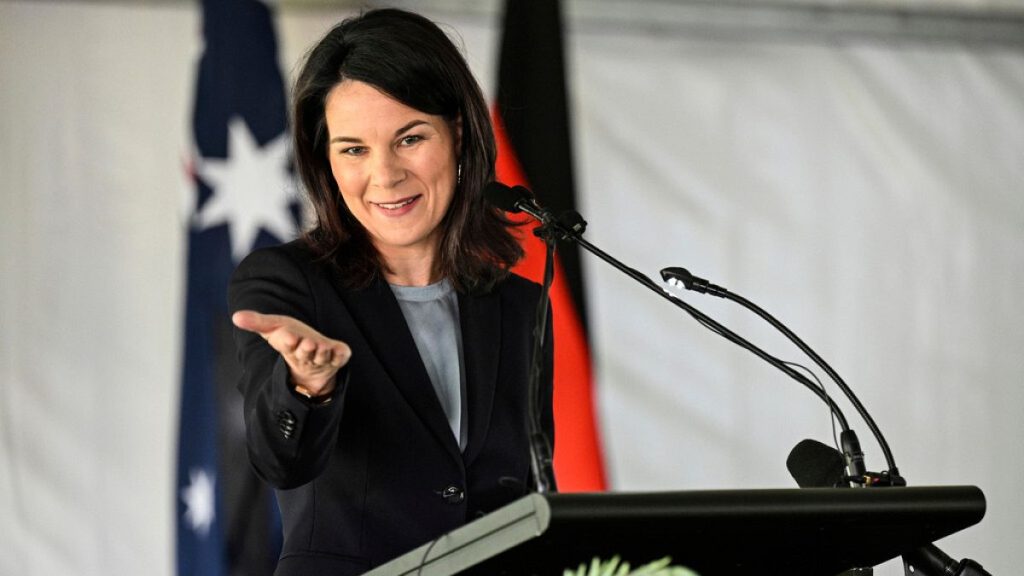German Foreign Minister Annalena Baerbock recently accused Russian state hackers of masterminding a cyberattack on the centre-left Social Democratic Party (SPD) in Germany. The attack, which occurred in January of 2023, was attributed to the group APT28, controlled by Russia’s military intelligence service. Baerbock labeled the attack as “absolutely intolerable” and stated that it would have consequences. Germany had previously provided military support to Ukraine in its conflict with Russia, further escalating tensions between the two European countries.
Baerbock made these remarks during a visit to Australia, New Zealand, and Fiji, focusing on security policies. She highlighted the importance of deepening defense cooperation between Germany and Australia, given the similar threats they both face. This visit also comes at a time when China is seeking to increase its influence in the Pacific region. Baerbock’s meeting with Australian Foreign Minister Penny Wong centered on discussions about the conflict in Gaza, with both officials emphasizing the need for a two-state solution to bring an end to the violence in the Middle East.
The German government’s investigation into the cyberattack on the SPD resulted in the accusation that Russian state hackers were responsible. The attack was believed to be a response to Germany’s decision to send tanks to Ukraine, further fueling tensions between Russia and Germany. Baerbock’s strong stance against Russia’s actions reflects the growing concern over cyber threats and foreign interference in European countries. Germany’s close defense cooperation with Australia reflects a shared commitment to addressing common security challenges and strengthening international alliances.
Baerbock’s visit to Australia marks the first time a German foreign minister has visited the country in 13 years, signaling a renewed focus on diplomatic relations and security cooperation between the two nations. The discussions between Baerbock and Wong highlight the importance of finding peaceful solutions to conflicts, such as the situation in Gaza. Both officials emphasized the need for a two-state solution as the ultimate path towards resolving the ongoing violence in the region. Baerbock’s visit to the Pacific region also underscores Germany’s commitment to addressing security challenges in cooperation with its international partners.
The accusations made by Baerbock against Russian state hackers and the subsequent closure of the German government’s investigation reflect the escalating tensions between Germany and Russia. The cyberattack on the SPD was seen as a direct response to Germany’s military support for Ukraine, further complicating relations between the two countries. Baerbock’s strong condemnation of Russia’s actions underscores the need for robust cybersecurity measures and international cooperation to address cyber threats effectively. Germany’s outreach to Australia and other Pacific nations demonstrates a strategic effort to strengthen alliances and security partnerships in response to evolving global security challenges.
Overall, Baerbock’s visit to Australia and her discussions with Australian officials highlight the importance of diplomacy, security cooperation, and conflict resolution in addressing global challenges. The accusations against Russian state hackers and the ongoing conflict in Gaza underscore the need for international solidarity and diplomatic efforts to promote peace and stability. Germany’s commitment to deepening defense cooperation with Australia reflects a shared commitment to addressing common security threats and advancing mutual interests. As tensions between European countries and Russia continue to escalate, the importance of diplomatic engagement and international alliances becomes increasingly crucial in promoting peace and security on the global stage.


